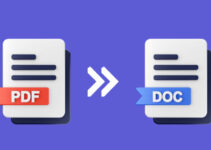Research is a compulsory subject in the contemporary education system. A student can’t graduate college without working on a few research papers. As a result, having multiple educational search engines is always a plus. Although most students have other study companions, a search engine enables you to conduct your own research or at least verify the credibility and reliability of the sources in your bibliography. In this article, we review 10 of the best and most useful search engines a student must know.

The Best Educational Search Engines for Open-Access Resources
1) BASE
Bielefeld Academic Search Engine (BASE) is one of the most reliable tools for research. With over 340 million indexed documents, the program is a valuable resource to any student who knows it. Although Bielefeld created BASE to provide open-access documents to scholars globally, only about 60% of its indexed documents are freely available to users. However, the company is on an ongoing mission to index academically relevant materials, making BASE one of the leading educational search engines.
Besides, the search engine has advanced capabilities to identify open-access documents from other databases, including PubMed and JSTOR. It incorporates artificial intelligence and machine learning technologies to make searching easier. Despite this technological advancement, BASE is only the tip of the iceberg. Several other search engines make a student’s life better.
2) PlosOne
PlosOne may not have the technological advancements of BASE, but it is surely a valuable destination for most college students. This search engine is one of the few to provide completely free academic resources. PlosOne features open-access educational materials derived from thousands of scholarly and peer-reviewed journals. It’s also accessible in multiple languages, although some of its documents are only available in the author’s language of choice.
Besides, PlosOne has its own database of academic resources. The database is part of the Plos infrastructure, a non-profit publisher that facilitates scientific research and scholarly works. The organization offers a free publication for writers in the Research4Life Group A countries, increasing accessibility to scientific research globally. It’s open access, which means you can read and download a PDF version of whatever article you want.
3) Semantic Scholar
The Semantic Scholar is a postmodern educational search engine designed for a college student. The program is AI-powered, reducing the need for complex search values and keywords. With over 200 million indexed scholarly works, Semantic Scholar closely rivals the leading open-access academic search engines.
Besides, the Allen Institute for AI boasts partnerships with multiple institutions and publishers, giving their program access to credible educational resources. By matching this with AI-powered web crawlers, the search engine is relatively efficient. Its high response rate and high number of open-access documents make it a valuable tool to have in school.
4) PubMed and PMC
The National Center for Biotechnology Information (NCBI) is one of the most reliable sources of information for medical and health sciences. The institution hosts two valuable databases accessible to students and scholars globally. PubMed hosts abstracts and citations, while PMC contains open-access scholarly works from multiple journals and publishers. NCBI is part of the National Institute of Health (NIH), including the National Library of Medicine.
Its high credibility and reliability make PubMed and PMC the most utilized databases for academic writing. These sites are so popular in medical and health sciences that CustomWritings.com, a leading writing service, trains its pro essay writers to rely on sources room NCBI. Using reliable and credible research sources is one of the characteristics of the best academic writing entities. As a result, most students in medical disciplines, such as nursing and psychology, perfect their academic performance by using sources from PMC.
Best Academic Search Engines for Brainstorming Ideas
5) ResearchGate
ResearchGate is a platform for scholars. It mimics a social media site with different avenues for researchers to interact and share ideas. You can even share your interim research findings and compare notes with experts in your field.
Most importantly, you can access multiple studies from renowned scholars and peer-reviewed journals. Imagine an avenue where you interact with professors and other notable figures in academia. This site is marvelous for those interested in scholarly works and helpful discussions.

6) Ask.com
Unlike ResearchGate, Ask.com is purely for asking questions. This platform is perfect for brainstorming. Ask.com is the top academic search engine when searching for plausible topics in your field of study. It allows users to ask strategic questions and develop suitable titles for their research.
The engine accesses multiple databases and responses from professionals, giving you access to thousands of topics. Its results also feature websites and journals, helping learners test and identify frequently researched topics.
Read Also: Try our free web-based AI email writer for Outlook
7) Google
Google may not be classified as a purely educational search engine. However, it’s usually the starting point for most students. The program allows the researcher to access websites and databases with useful academic information. Google is clearly the most dependable and common search engine globally. Students use it to search for topics, analyze alternatives, compare hypotheses, and identify sources.
Despite its effectiveness, Google requires the user to understand their search criteria and use appropriate keywords to narrow their search to a manageable scope. You must learn to use a generic search engine, especially Boolean values, and other criteria, before you can rely on Google for your academic research.
The Best Three Educational Search Engines for Students
8) ERIC
The Educational Resources Information Center (ERIC) is one of the most commonly used search engines by students working on their essays. It is reputable for relevance and accessibility, especially to open-access documents. Although not all its resources are freely available to students, most of the featured documents in the search results are accessible.
This program is best for those looking to create short bibliographies for their coursework. ERIC competes with leading educational databases like JSTOR and PubMed in providing accessible academic resources. With funding from the Institute of Education Sciences, this search engine is a must-have for all students in the United States.
9) ScienceDirect
If you are a medical student, just seeing the name ScienceDirect must excite you a little bit. This search engine and associated database is the world leader in all research information in medical and health sciences. It allows you access to thousands of abstracts, citations, books, encyclopedias, and scholarly papers by multiple journals and authors. It is known for publishing peer-reviewed journals and credible medical findings. ScienceDirect is every medical student’s sidekick in the academic world.
10) Google Scholar
We always save the best for last. Google Scholar is one of the most efficient and reliable educational search engines for students. With access to hundreds of millions of indexed materials, this search engine rules the academic world. You can hardly meet a tertiary-level student who doesn’t know how to use Google Scholar.
Like most reputable academic search engines, it allows you to create citations for the identified resources. You can easily download the references in almost any common referencing style and paste them into your document. You may need to twitch the final citation a little to make it more accurate, but references are relatively okay.






